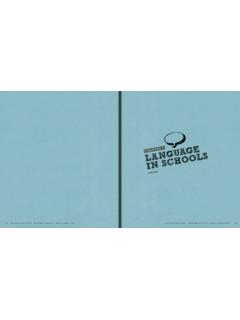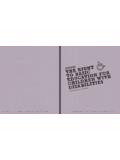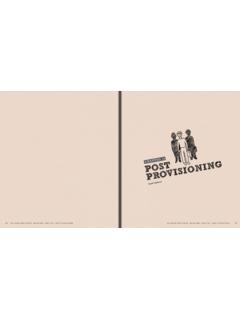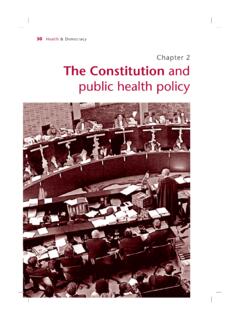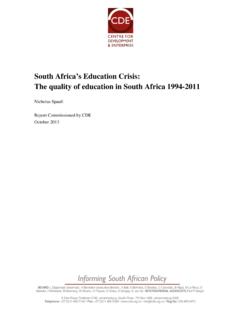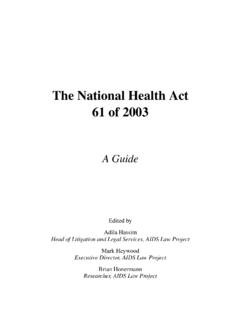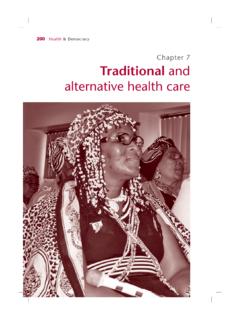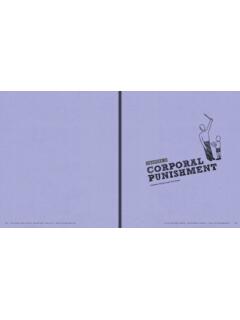Transcription of NATIONAL HEALTH ACT 61 OF 2003 - SECTION27
1 COPYRIGHTThis work has been transmitted to you as a subscriber or by a Sabinet subscriber. All works and portions of works published on Sabinet arethe copyright of Sabinet. No part of any work may be reproduced or used to create works by the recipient or user, in any form or by anymeans, for any commercial or non-commercial purpose whatsoever, without Sabinet's prior written permission. Any unauthorisedreproduction of a work subject to copyright will constitute a copyright infringement and render the doer liable under both civil and criminallawNATIONAL HEALTH ACT 61 OF 2003 emergency MEDICAL SERVICES REGULATIONS, 2017 Published under Government Notice 1320 in Government Gazette 41287 of 1 December 2017. I, Dr Aaron Motsoaledi, the Minister of HEALTH has, in terms of section 90(1)(m) read with section 43(1)of the NATIONAL HEALTH Act, 2003 (Act No.)
2 61 of 2003), made the Regulations in the Schedule. (Signed)DR A MOTSOALEDI, MPMINISTER OF HEALTHDATE: 26/10/2017 PART 1 REGULATORY FRAMEWORK 1. Definitions2. Scope of application PART 2 EMS ADVISORY COMMITTEE 3. emergency Medical Services Advisory Committee4. Exclusion of Members of Committee5. Declaration by Committee Members6. Termination of membership PART 3 LICENSING OF emergency MEDICAL SERVICES 7. Licensing8. Application for licence9. Processing of application10. Consideration of application for licence11. Recommendations of Committee12. Decision of Head of Department13. Issuing of licence and licence tokens14. Annual renewal of licence and licence token15. Suspension or cancellation of licence16. Reinstatement of licence and lifting of suspension17.
3 Amendment of licence18. Change of ownership19. Fees20. Exemptions21. Appeal PART 4 INSPECTION OF emergency MEDICAL SERVICES 22. Inspection for new applications23. Inspection of registered emergency medical services PART 5 EMS OPERATIONAL AFFAIRS 24. Display of licence and licence token25. Name of emergency medical service26. Management of emergency medical service27. Information concerning emergency Medical Service28. Powers of emergency care personnel PART 6 MISCELLANEOUS PROVISIONS 29. Delegations30. Offences and penalties31. Transitional provisions32. Repeal33. Short title ANNEXURE A: REQUIREMENTS FOR emergency MEDICAL SERVICESANNEXURE B: EQUIPMENTANNEXURE C: emergency MEDICAL SERVICE LICENCE APPLICATIONANNEXURE D: emergency MEDICAL SERVICES FEES SCHEDULE PART 1 REGULATORY FRAMEWORK 1.
4 Definitions In these Regulations, a word or expression to which a meaning has been assigned in the Act, bearsthe meaning so assigned and, unless the context otherwise indicates- Advanced Life Support (ALS) means a level of care provided within the Paramedic, EmergencyCare Technician or emergency Care Practitioner scope of practice, as determined by the HealthProfessions council of south africa in terms of the HEALTH professions Act; adverse patient incident means an event or circumstance that leads to unintended harm, injury,suffering or illness of a patient; air ambulance means an airborne vehicle- (a) appropriately equipped, designed or adapted solely for the purpose of providing emergencycare and conveyance of patients; (b) which is licensed to an emergency Medical Service; (c) registered as an air ambulance in terms of the Civil Aviation Act, 2009 (Act No.)
5 13 of 2009);and (d) staffed and equipped as per Annexures A and B ; ambulance means a motor vehicle- (a) appropriately equipped, designed or adapted solely for the purpose of providing emergencycare and conveyance of patients; (b) owned by an emergency Medical Service; (c) registered as an ambulance in terms of the NATIONAL Road Traffic Act; and (d) staffed and equipped as per Annexures A and B ; Ambulance emergency Assistant means a person registered as such with the HEALTH ProfessionsCouncil of south africa in terms of the HEALTH professions Act; Basic Ambulance Assistant means a person registered as such with the HEALTH ProfessionsCouncil of south africa in terms of the HEALTH professions Act; Basic Life Support (BLS) means a level of emergency care provided primarily by emergencycare providers that practise within the Basic Ambulance Assistant scope of practice as determinedby the HEALTH professions council of south africa in terms of the HEALTH professions Act; Committee means the emergency Medical Services Advisory Committee appointed in terms ofregulation 3; dirty utility facility means a facility that is dedicated to the laundering of dirty linen, cleaning ofsoiled equipment and sluice requirements.
6 Education Institution emergency Medical Service means an organisation or body that isdedicated, staffed and equipped to operate as an ambulance or medical response vehicle in order tooffer emergency care for the purpose of educating and training emergency care students who areregistered with the HEALTH professions council of south africa in terms of the HEALTH ProfessionsAct; emergency care means the evaluation, treatment and care of an ill or injured person in a situationin which such emergency evaluation, treatment and care is required, and the continuation oftreatment and care during the transportation of such person to or between HEALTH establishments; emergency Care Assistant means a person registered as such with the HEALTH ProfessionsCouncil of south africa in terms of the HEALTH professions Act; emergency care personnel means personnel who are registered with the HEALTH ProfessionsCouncil of south africa under the auspices of the professional board for emergency Care; emergency Care Practitioner means a person registered as such with the HEALTH ProfessionsCouncil of south africa in terms of the HEALTH professions Act; emergency Care Technician means a person registered as such with the HEALTH ProfessionsCouncil of south africa in terms of the HEALTH professions Act.
7 emergency Medical Service means an organisation or body that is dedicated, staffed andequipped to operate an ambulance, medical rescue vehicle or medical response vehicle in order tooffer emergency care; Event Medical Service means an organisation or body that is dedicated, equipped and staffed bypersons registered with the HEALTH professions council of south africa in terms of the HealthProfessions Act to operate an ambulance or medical response vehicle in order to offer emergencycare at mass gatherings or high risk events; emergency Medical Service Manager means a person who is duly appointed as the responsiblemanager for the emergency Medical Service and who is registered with the HEALTH ProfessionsCouncil of south africa in terms of the HEALTH professions Act; Head of Department means the accounting officer for a provincial HEALTH department; HEALTH professions Act means the HEALTH professions Act, 1974 (Act of 1974); HEALTH professions council of south africa means the body established in terms of section 2 ofthe HEALTH professions Act; inspecting officer means a person employed or appointed by the Provincial HEALTH Licensing andInspectorate Authority; Intermediate Life Support (ILS) means a level of emergency care provided within theAmbulance emergency Assistant and emergency Care Assistant scope of practice as determined bythe HEALTH professions council of south africa in terms of the HEALTH professions Act; licence means a licence issued in terms of these Regulations, which authorises the provision of anemergency medical service.
8 Licensing and Inspectorate Authority means the provincial HEALTH component appointed by theHead of Department for the licensing and inspection of emergency Medical Services: MEC means the Member of the Executive council responsible for HEALTH ; Medical Practitioner means a person registered as such in terms of the HEALTH professions Act; medical rescue means practices involving the location, access, extrication and emergency care ofa person. medical rescue vehicle means a vehicle- (a) appropriately equipped designed or adapted solely for the purpose of providing medicalrescue; (b) owned by an emergency Medical Service; (c) registered as a medical rescue vehicle in terms of the NATIONAL Road Traffic Act; and (d) staffed and equipped as per Annexures A and B ; medical response vehicle means a vehicle- (a) appropriately equipped designed or adapted solely for the purpose of providing medicalresponse; (b) owned by an emergency Medical Service; (c) registered as a medical response vehicle in terms of the NATIONAL Road Traffic Act; and (d) staffed and equipped as per Annexures A and B.
9 Member means a person appointed in terms of regulation 3 to serve on the Committee: NATIONAL Road Traffic Act means the NATIONAL Road Traffic Act, 1996 (Act of 1996); Paramedic means a person registered as such with the HEALTH professions council of SouthAfrica in terms of the HEALTH professions Act; response time means the time measured from when an emergency Medical Service receives anemergency call to the time the first emergency care personnel or medical practitioner arrives at thescene; responsible person means a person, a nominee, in the case of a company or an association ofpersons (whether corporate or not) or an organ of state, registered with the HEALTH ProfessionsCouncil of south africa , who establishes, extends, conducts, maintains or renders an emergencymedical service; Register of emergency Medical Services means the register referred to in regulation 9(15); station means a dedicated self-contained facility for the housing of emergency vehicles,personnel and associated emergency equipment; temporary licence means a valid licence issued in terms of these Regulations which authorisesthe temporary provision of an emergency medical service; and Volunteer emergency Medical Service means an organisation or body- (a) licensed to provide such volunteer emergency medical services as formally approved by therelevant Provincial Department of HEALTH ; (b) registered in accordance with the NATIONAL Road Traffic Act.
10 And (c) registered as a Non-Profit Organisation, as well as a Public Benefit Organisation as providedfor in the Non-Profit Organisation Act, 1997 (Act No. 71 of 1997) and the Income Tax Act1962 (Act No. 58 of 1962), respectively; Volunteer emergency Medical Service personnel means personnel who- (a) are registered practitioners with the HEALTH professions council of south africa in terms of theHealth professions Act; (b) are members of a licensed Volunteer emergency Medical Service; and (c) do not receive any remuneration for the provision of emergency medical services, but mayreceive reasonable reimbursement for expenses incurred. 2. Scope of application These Regulations apply to public and private emergency Medical Services operating in theRepublic of south africa , excluding the south African NATIONAL Defence Force.

